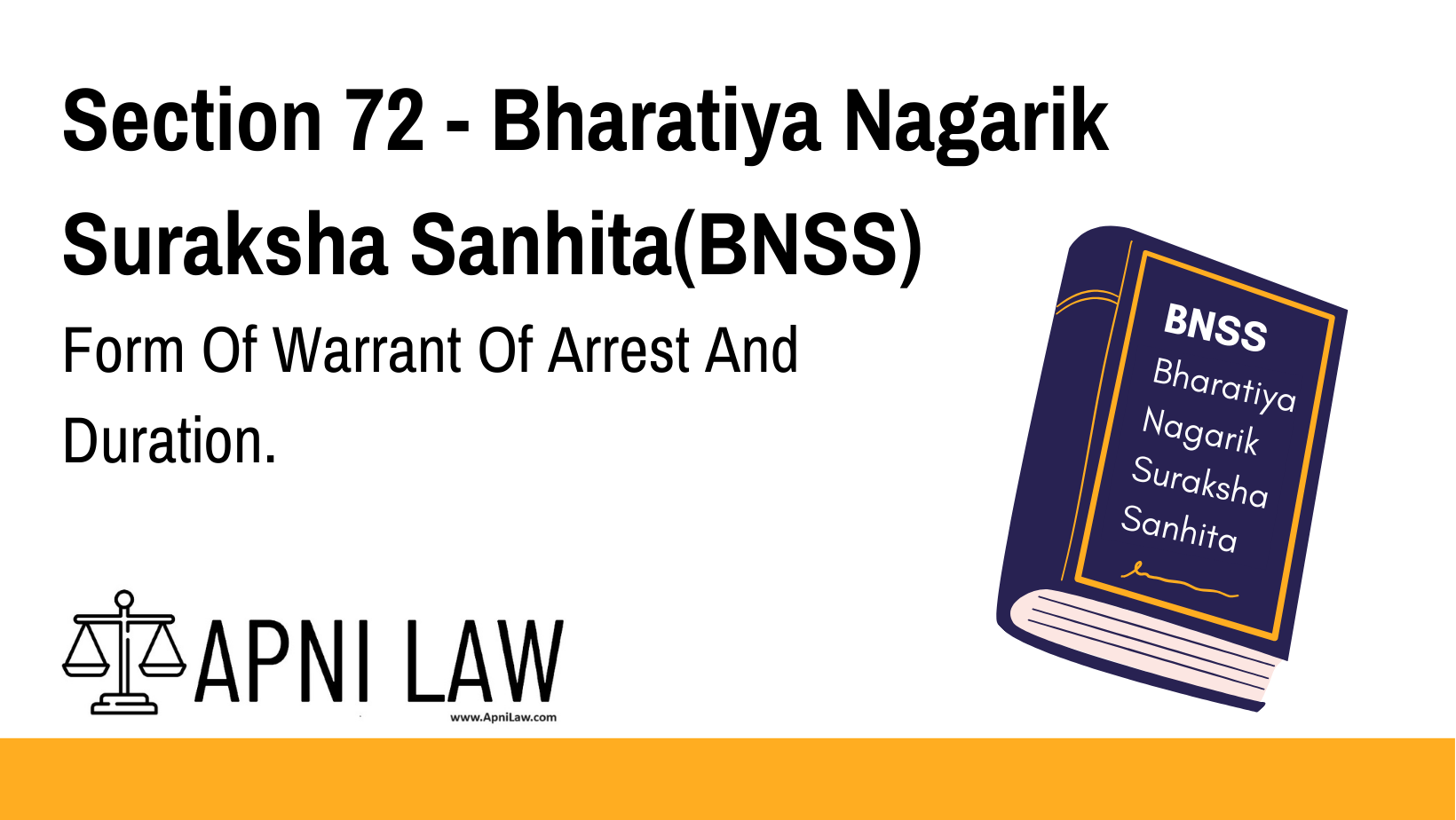Code: Section 72 BNSS
(1) Every warrant of arrest issued by a Court under this Sanhita shall be in writing,
signed by the presiding officer of such Court and shall bear the seal of the Court.(2) Every such warrant shall remain in force until it is cancelled by the Court which
issued it, or until it is executed.
Explanation of Section 72 BNSS
Key Elements of a Valid Warrant
-
Written and Signed by the Presiding Officer
-
A warrant must be in writing and signed by the Judge or Magistrate issuing it.
-
An oral order does not constitute a valid arrest warrant.
-
-
Must Bear the Seal of the Court
-
The official seal of the issuing Court must be present.
-
This ensures authenticity and legality.
-
-
Validity Until Execution or Cancellation
-
A warrant remains in force indefinitely until it is executed or cancelled by the Court.
-
There is no automatic expiration unless revoked by judicial order.
-
Illustration of Section 72 BNSS
Example 1: Valid Execution of a Warrant
A Magistrate issues a warrant against an individual involved in a fraud case.
The warrant is written, signed, and bears the Court’s seal.
The police execute the warrant by arresting the accused.
Since the execution is complete, the warrant no longer remains in force.
Example 2: Cancellation of a Warrant
A Court issues a warrant against a suspect but later, the accused surrenders voluntarily.
The defense lawyer files an application for cancellation of the warrant.
The Court cancels the warrant, rendering it invalid for execution.
Common Questions and Answers on Section 72 BNSS
1. Can a warrant be executed without the Court’s seal?
❌ No. A warrant must bear the Court’s seal to be legally valid.
2. Does a warrant expire after a certain period?
❌ No. It remains in force until executed or cancelled by the Court.
3. Who can cancel an arrest warrant?
✅ Only the Court that issued the warrant has the authority to cancel it.
4. Can an unsigned warrant be executed?
❌ No. A warrant must be signed by the presiding officer; otherwise, it is invalid.
5. What happens if a warrant is not executed?
✅ It remains active until:
-
The accused is arrested.
-
The Court revokes it upon a legal request.
Conclusion
Section 72 BNSS ensures that warrants of arrest maintain legal integrity by requiring them to be written, signed, and sealed by the Court. This section also establishes that a warrant remains valid until its execution or cancellation, preventing loopholes in law enforcement.
For expert legal insights, visit ApniLaw today!











